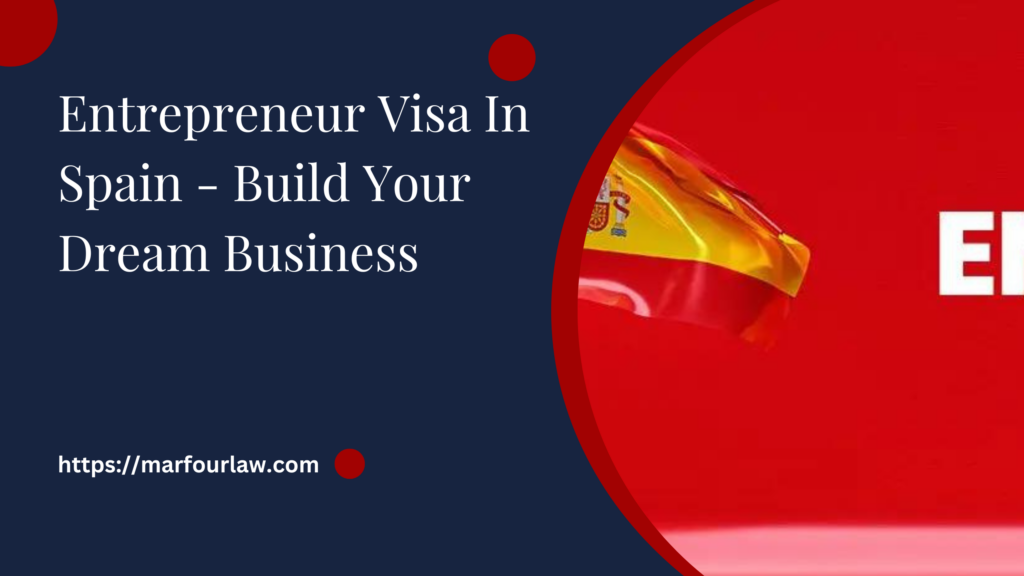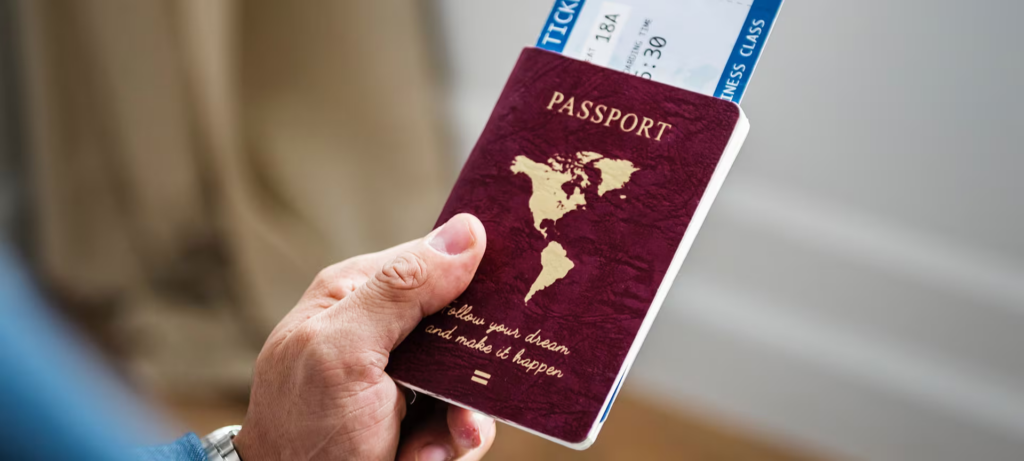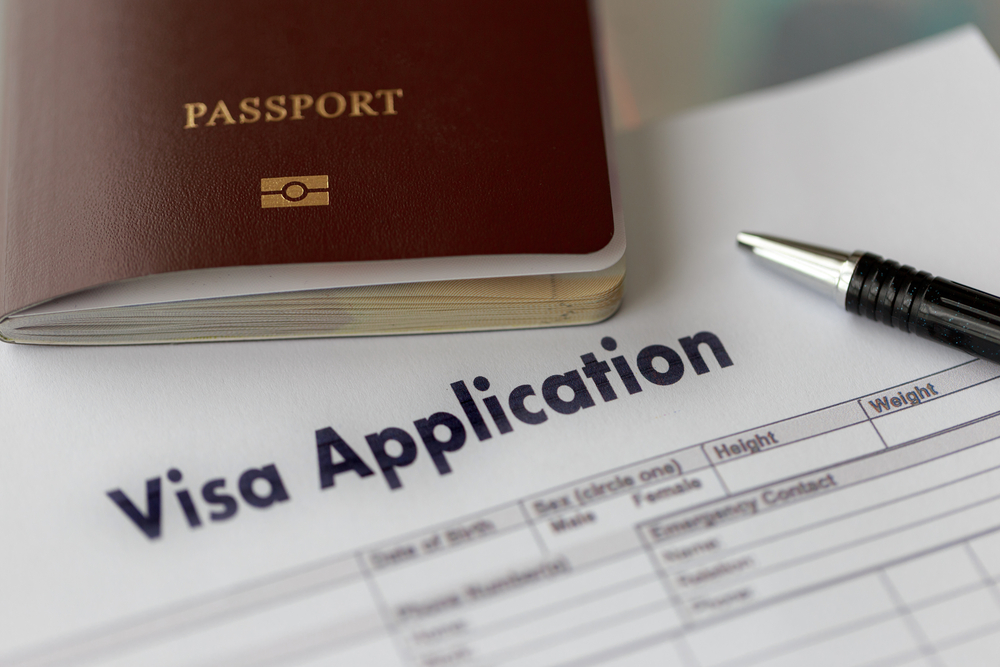Entrepreneur Visa In Spain – Build Your Dream Business
Are you thinking about starting a business in Spain? The Entrepreneur Visa In Spain could be the perfect opportunity for you. This visa allows you to set up and grow your business in one of Europe’s most dynamic markets.

Are you curious about how to get the Spain Entrepreneur Visa? We’ll guide you through the steps to make your entrepreneurial dreams come true in Spain.
Understanding the Entrepreneur Visa in Spain
The Entrepreneur Visa is designed for non-EU citizens who wish to establish a business in Spain. It offers an opportunity to legally reside and work in Spain while actively contributing to the country’s economy.
Purpose and Benefits
This visa facilitates entrepreneurial activities by providing a pathway for individuals to launch and manage businesses in Spain. It encourages innovation, job creation, and economic growth within the local market.
Legal Framework: Spain’s Entrepreneurship Law (14/2013)
Spain’s Entrepreneurship Law, established in 2013, outlines the legal framework governing the Entrepreneur Visa. It defines the eligibility criteria, application process, and rights granted to visa holders.
Eligibility Criteria
To qualify for the Entrepreneur Visa, applicants must demonstrate:
- Entrepreneurial Intent: A credible and innovative business proposal that aligns with Spain’s economic interests.
- Financial Solvency: Proof of sufficient funds to support themselves and their business activities in Spain.
- Business Plan: A comprehensive plan outlining the business concept, market analysis, financial projections, and potential job creation.
Application Process
Applying for the Entrepreneur Visa involves several steps:
- Business Plan Preparation: Crafting a detailed business plan that meets the visa requirements and showcases the business’s potential contribution to the Spanish economy.
- Submission to Authorities: Presenting the business plan and supporting documents to relevant authorities, such as the Spanish Entrepreneurship and Business Growth Agency (ENISA) and the Consulate or Immigration Office.
- Evaluation and Decision: The authorities assess the viability of the business plan, financial stability of the applicant, and overall alignment with visa criteria before granting approval.
Rights and Responsibilities
Upon receiving the Entrepreneur Visa, holders are entitled to reside in Spain and manage their business operations. They must comply with Spanish laws, pay taxes, and contribute to the national economy.
Understanding the Entrepreneur Visa in Spain is crucial for aspiring entrepreneurs seeking to establish a business in the country.
By adhering to the legal framework, fulfilling eligibility criteria, and presenting a compelling business plan, applicants can navigate the visa process successfully and embark on their entrepreneurial journey in Spain.
Choosing the Right Visa for Starting a Business in Spain
When embarking on the journey of starting a business in Spain, one of the most crucial decisions you’ll face is selecting the appropriate visa. Spain offers several visa options designed to facilitate entrepreneurship and business ownership, each tailored to different circumstances and goals.

Types of Visas Available
Spain provides a range of visa categories that cater to entrepreneurs and business owners. Among these, the Entrepreneur Visa (also known as the Startup Visa) stands out for its focus on enabling non-EU nationals to establish and operate businesses within Spain’s borders. This visa is particularly advantageous as it streamlines the process for those who meet specific entrepreneurial criteria.
Entrepreneur Visa Overview
The Entrepreneur Visa is designed for individuals who plan to launch a business venture in Spain. It simplifies the entry and residency process for non-EU nationals by offering a clear path to legal establishment and operation of a business.
Applicants typically need to present a robust business plan that outlines their venture’s feasibility, financial stability, and potential contribution to Spain’s economy.
Requirements for the Entrepreneur Visa
To qualify for the Entrepreneur Visa, applicants must demonstrate their ability to fulfill specific criteria, including a viable business plan, sufficient financial resources to support their personal expenses and their business, and a commitment to generating employment or contributing economically to Spain.
This visa option is ideal for individuals with innovative business ideas or scalable projects that can potentially benefit the local economy.
Comparing Other Visa Options
Aside from the Entrepreneur Visa, other visa categories such as the Self-Employed Visa and Investor Visa also cater to individuals looking to engage in business activities in Spain.
The Self-Employed Visa is suitable for freelancers or professionals seeking to establish themselves independently, while the Investor Visa is tailored for individuals making a significant financial investment in Spain, such as through real estate or government bonds. Each visa type has specific requirements and benefits, depending on factors such as initial investment, business scope, and duration of stay.
Considerations Before Choosing
Before deciding on a visa type, aspiring entrepreneurs should carefully consider several factors. These include the financial investment required to qualify for each visa, the flexibility of the visa in terms of permissible business activities, and the duration and renewal options available. It’s essential to assess which visa aligns best with your business goals and long-term plans for operating in Spain.
Seeking Professional Advice
Navigating the intricacies of Spain’s visa application process can be daunting. Seeking guidance from immigration experts or legal advisors specializing in Spanish visa law can provide invaluable support.
These professionals can offer personalized advice, ensure compliance with all legal requirements, and help streamline the application process, ultimately saving time and minimizing potential complications.
10 Benefits of Spain’s Startup Visa Program
Spain’s Startup Visa Program offers numerous advantages for entrepreneurs aiming to establish or expand their business ventures in the country. Below are the key benefits explained in detail:
1. Simplified Entry Process
The program streamlines the visa application process, reducing bureaucratic obstacles and making it easier for entrepreneurs to enter Spain swiftly to launch their businesses.
2. Access to the European Market
By securing a startup visa in Spain, entrepreneurs gain access not only to Spain’s vibrant market but also to the extensive European Union (EU) market. This access facilitates expansion and growth opportunities within a large and economically integrated region.
3. Supportive Startup Ecosystem
Spain boasts a supportive ecosystem for startups, offering access to incubators, accelerators, and co-working spaces. These resources provide invaluable support through mentorship, networking opportunities, and essential infrastructure.
4. Financial Incentives and Funding
Entrepreneurs under the startup visa program may qualify for financial incentives such as grants, loans, or subsidies to foster innovation, sustainability, and job creation in the startup sector.
5. Family Reunification
Successful applicants of the startup visa can bring immediate family members (spouses and children) to reside with them in Spain, creating a stable and supportive environment conducive to entrepreneurial endeavors.
6. Pathway to Permanent Residency
The startup visa serves as a pathway to permanent residency in Spain. By meeting specified criteria, such as job creation or contributing to the Spanish economy, entrepreneurs can secure long-term residency and potentially Spanish citizenship.
7. Business Networking Opportunities
Spain offers ample opportunities for entrepreneurs to network with industry leaders, potential investors, and fellow entrepreneurs, fostering collaboration and growth within the startup community.
8. Access to Talent Pool
Entrepreneurs under the startup visa program can tap into Spain’s diverse and skilled talent pool, facilitating the recruitment of qualified professionals essential for business growth and development.
9. Strategic Location and Infrastructure
Spain’s strategic location within Europe, coupled with modern infrastructure and connectivity, positions entrepreneurs to access global markets efficiently and effectively.
10. Quality of Life and Cultural Richness
Beyond business advantages, Spain offers a high quality of life characterized by a rich cultural heritage, vibrant cities, and a favorable climate, providing entrepreneurs and their families with an enjoyable lifestyle while pursuing business goals.
How to Apply for an Entrepreneur Visa in Spain: Step-by-Step Guide
Applying for an Entrepreneur Visa in Spain involves several key steps to ensure a successful application process. Below is a detailed guide to help you navigate through this process smoothly:

Crafting a Strong Business Plan for Your Application
Before applying for the Entrepreneur Visa, you need to develop a comprehensive business plan. This plan should outline your business idea, including its objectives, market analysis, financial projections, and operational strategies.
It’s crucial to emphasize how your business will contribute to the Spanish economy, such as creating jobs or introducing innovative products/services.
Partnering with ENISA: Innovation and Scalability Requirements
ENISA (Empresa Nacional de Innovación S.A.) plays a significant role in evaluating the innovation and scalability of your business idea. Ensure your business plan demonstrates innovative aspects and scalability potential, aligning with Spain’s economic growth objectives. ENISA’s endorsement can strengthen your visa application.
Managing Your Immigration Documents: Tips and Requirements
Gathering and managing your immigration documents is essential for a smooth application process. These documents typically include your passport, proof of sufficient funds, health insurance coverage, and any additional documents required by Spanish authorities.
Ensure all documents are up-to-date and meet the specific visa requirements.
Application Process with the Consulate and UGE
Once your business plan and personal documents are prepared, you’ll need to submit them to either the Spanish Consulate in your home country or directly to the Unidad de Grandes Empresas (UGE) in Spain. The application process involves:
- Scheduling an appointment.
- Providing biometric data (if required).
- Paying the visa fees.
- Attending an interview to discuss your business plan and visa intentions.
Dealing with Visa Rejection: Steps to Take If Your Application is Denied
If your Entrepreneur Visa application is denied, it’s crucial to understand the reasons provided by the authorities. You may have the option to appeal the decision or reapply with improvements to your business plan or supporting documentation.
Seeking feedback from immigration advisors can help you address any shortcomings and increase your chances of approval in subsequent attempts. This step-by-step guide provides a clear pathway to navigate the Entrepreneur Visa application process in Spain effectively. By following these steps diligently and seeking professional advice when needed, you can enhance your chances of obtaining the visa and realizing your entrepreneurial ambitions in Spain.
Requirements for the Entrepreneur Visa in Spain
The Entrepreneur Visa allows individuals to establish and manage a business in Spain. To qualify for this visa, applicants must meet specific criteria demonstrating their capability and intention to contribute positively to Spain’s economy.
Developing Your Professional Profile for Visa Eligibility
To qualify for the Entrepreneur Visa, applicants must have a strong professional background that supports their ability to run a business in Spain successfully. This includes:
- Educational Background: Highlighting relevant degrees or certifications related to your business field.
- Work Experience: Demonstrating previous experience in entrepreneurship, management, or relevant sectors.
- Skills: Emphasizing skills such as leadership, strategic planning, and business development that are crucial for running a successful venture.
Writing an Effective Business Plan: Tips for Success
A key requirement for the Entrepreneur Visa is submitting a comprehensive business plan that outlines:
- Business Idea: Clearly describe your business concept, including products or services offered.
- Market Analysis: Identifying your target market and competitors and outlining your market strategy.
- Financial Projections: Provide realistic financial forecasts, including startup costs, revenue projections, and profitability estimates.
- Operational Plan: Detailing how your business will operate on a day-to-day basis, including staffing, logistics, and suppliers.
Seeking professional assistance in crafting your business plan can increase its effectiveness and improve your chances of visa approval.
Demonstrating Your Business’s Contribution to Spain’s Economy
The Spanish authorities assess how your business will contribute positively to the national economy. You should:
- Job Creation: Show how your business will create employment opportunities for residents.
- Investment: Highlight any investments in local resources, infrastructure, or innovation.
- Economic Impact: Provide projections on how your business will contribute to economic growth, trade balance, or sector development.
- Community Benefits: Explain any social or environmental benefits your business may bring to the community.
Overview of Other General Requirements
In addition to the specific criteria mentioned above, applicants must fulfill other general requirements, including:
- Financial Resources: Demonstrating sufficient funds to support yourself and any dependents during your stay in Spain.
- Health Insurance: Maintaining valid health insurance coverage for the duration of your visa.
- Background Check: Passing a background check to ensure compliance with Spanish immigration regulations.
Ensuring all documentation is accurate and complete when submitting your visa application is crucial to avoiding delays or potential rejections.
Documents Required for Your Entrepreneur Visa Application
To successfully apply for an Entrepreneur Visa in Spain, you need to prepare and submit several documents that demonstrate your eligibility and intention to start a business.

Personal Identification Documents
Ensure you have valid copies of your passport, recent passport-sized photos, and any other identification required by Spanish authorities.
Proof of Financial Means
Provide evidence of sufficient financial resources to support yourself and your business in Spain. This could include bank statements, investment portfolios, or income statements.
Business Plan
Craft a detailed business plan outlining your business idea, market analysis, financial projections, and operational strategies. Marfour offers insights into creating a compelling plan that meets visa requirements.
Health Insurance Coverage
Obtain health insurance coverage valid in Spain during your stay, covering medical expenses and emergencies.
Criminal Record Certificate
Submit a recent criminal record certificate from your country of residence to prove you have no criminal history.
Additional Requirements
Depending on your specific situation, additional documents such as marriage certificates, educational qualifications, or proof of previous business experience may be required.
Starting the Right Business in Spain: Essential Steps
Starting a business in Spain involves several crucial steps to ensure legal compliance and operational success.
Market Research and Opportunity Assessment
Conduct thorough market research to identify viable business opportunities in Spain. Marfour provides tools and resources to analyze market trends and consumer behavior.
Choosing the Legal Structure
Select the appropriate legal structure for your business, such as sole proprietorship, partnership, or limited liability company (LLC). Consider tax implications and liability factors.
Registering Your Business
Register your business with the Spanish Commercial Registry (Registro Mercantil) and obtain a tax identification number (NIF) from the Spanish Tax Agency (Agencia Tributaria).
Securing Funding and Financing
Explore funding options available in Spain, such as grants, loans, or venture capital. Marfour offers insights into alternative financing solutions and how to access them.
Compliance with Regulations
Ensure compliance with local regulations and obtain necessary licenses and permits to operate legally in Spain.
Renewing Your Entrepreneur Visa in Spain: Guide and Requirements
Once you have established your business in Spain, it’s essential to understand the process of renewing your Entrepreneur Visa to continue operating legally.

Understanding Renewal Requirements
Familiarize yourself with the renewal criteria, including financial stability, business activity, and adherence to Spanish laws.
Documentation for Renewal
To support your visa renewal application, prepare updated documents such as financial statements, business activity reports, and tax filings.
Application Process
Follow the renewal application process outlined by the Spanish authorities, including submission deadlines and required forms.
Seeking Professional Advice
Consider consulting with immigration experts or legal advisors to navigate the renewal process smoothly. Marfour guides maintaining visa compliance and renewing successfully.
Understanding the Financial Requirements for the Entrepreneur Visa
Before applying for an Entrepreneur Visa in Spain, it’s crucial to grasp the financial criteria and obligations involved.
Minimum Investment Amount
Understand the minimum investment required to qualify for the Entrepreneur Visa, considering factors like business type and location.
Proof of Financial Solvency
Demonstrate sufficient funds to cover personal and business expenses in Spain, ensuring stability and viability.
Financial Projections
Prepare financial projections for your business, showcasing potential revenue, expenses, and profitability. Marfour offers tools to help entrepreneurs forecast financial outcomes accurately.
Managing Cash Flow
Develop strategies to manage cash flow effectively, addressing seasonal variations and business fluctuations.
Tax Implications
Understand the tax implications of operating a business in Spain, including corporate taxes, VAT, and personal income tax obligations.
Assessing the Market: Choosing the Right Business Opportunity in Spain
Spain offers a diverse and dynamic market for entrepreneurs looking to start a business. Assessing the market effectively can significantly increase your chances of success.
Understanding Spain’s Business Landscape
Spain’s economy is varied, with strong sectors such as tourism, renewable energy, technology, and agriculture. Understanding these sectors can help you identify lucrative opportunities.
Analyzing Market Trends and Demand
Researching current market trends and consumer demands is crucial. Look for gaps in the market or emerging trends that align with your business idea.
Identifying Local Needs and Preferences
Consider the unique preferences and cultural nuances of Spanish consumers. Adapting your product or service to meet local needs can give you a competitive edge.
Competitive Analysis
Conduct a thorough analysis of your competitors. Identify their strengths, weaknesses, pricing strategies, and market positioning. Differentiate your business by offering something unique or addressing gaps in the market.
Market Entry Strategy
Develop a clear market entry strategy tailored to the Spanish market. Consider factors such as distribution channels, pricing strategies, and marketing approaches that resonate with Spanish consumers.
Marfour’s Expertise
At Marfour, we specialize in helping entrepreneurs assess and enter the Spanish market successfully. Our insights and guidance can support you in making informed decisions and seizing opportunities for your business.
Legal Considerations: Setting Up Your Business Entity in Spain
Setting up your business in Spain involves navigating several legal considerations to ensure compliance and smooth operations.

Choosing the Right Business Structure
In Spain, entrepreneurs can opt for various business structures such as sole proprietorship, partnership, limited liability company (SL), or corporation (SA).
Each structure has different implications for liability, taxation, and administrative requirements. Consulting with experts at Marfour can help you choose the structure that best suits your business goals and legal obligations.
Registering Your Business
Registering your business entity in Spain involves obtaining a tax identification number (NIF) and completing registration with relevant authorities.
Marfour can guide you through the registration process, ensuring all necessary documentation and legal formalities are fulfilled to start your business smoothly.
Compliance with Local Regulations
Compliance with local regulations is crucial to avoid legal issues and penalties. Depending on your industry and business activities, specific licenses, permits, or certifications may be required.
Marfour provides comprehensive support in navigating regulatory requirements, ensuring your business operates within the legal framework.
Networking and Support: Resources for Entrepreneurs in Spain
Building a network and accessing support resources is vital for success as an entrepreneur in Spain’s competitive market.
Industry Associations and Chambers of Commerce
Industry-specific associations and chambers of commerce offer valuable networking opportunities, industry insights, and advocacy for businesses. Marfour recommends connecting with relevant associations to stay updated on industry trends and opportunities for collaboration.
Incubators and Accelerators
Startup incubators and accelerators provide mentorship, funding opportunities, and access to resources that can accelerate your business growth. Marfour collaborates with leading incubators and accelerators in Spain, assisting you in accessing these valuable networks and support programs.
Networking Events and Conferences
Attending networking events, conferences, and trade shows across Spain allows you to connect with potential partners, investors, and customers. Marfour encourages participation in these events to expand your professional network and foster strategic relationships beneficial to your business goals.
Tax Implications for Entrepreneurs in Spain: What You Need to Know
Understanding the tax implications of doing business in Spain is essential for effective financial management and compliance.
Corporate Taxation
Spain’s corporate tax system includes tax rates, deductions, and credits applicable to businesses. Marfour provides expert guidance on optimizing your tax strategy to minimize liabilities while complying with legal requirements.
VAT (Value Added Tax)
Value Added Tax (VAT) applies to most goods and services in Spain. Marfour assists businesses in understanding VAT obligations, registration procedures, and compliance to avoid penalties and ensure smooth operations.
Personal Income Tax
Entrepreneurs and employees in Spain are subject to personal income tax based on their earnings. Marfour advises on tax planning strategies and deductions available to individuals, ensuring compliance with Spanish tax laws.
Leveraging Cultural and Linguistic Factors in Your Business Strategy
Adapting your business strategy to cultural and linguistic factors is essential for successful market entry and customer engagement in Spain.

Understanding Cultural Norms and Values
Understanding Spanish cultural norms, values, and consumer behavior is crucial for tailoring your products or services effectively. Marfour offers insights into cultural nuances that can influence consumer preferences and purchasing decisions.
Localization of Marketing and Communication
Localizing your marketing campaigns, website content, and customer support in Spanish enhances customer engagement and brand credibility. Marfour recommends linguistic adaptation to communicate your brand message to Spanish-speaking audiences effectively.
Building Relationships through Language
Proficiency in Spanish facilitates effective communication and relationship-building with local stakeholders. Marfour emphasizes the importance of language skills in establishing trust and fostering long-term business relationships in Spain.
Exploring Alternative Financing Options for Your Business in Spain
Exploring diverse financing options is essential to secure the capital needed for starting or expanding your business in Spain.
Government Grants and Subsidies
Government grants, subsidies, and incentives are available to support startups and businesses in specific industries or regions. Marfour guides you on identifying and applying for relevant funding opportunities to fuel your business growth.
Venture Capital and Angel Investors
Venture capital firms and angel investors play a crucial role in financing innovative startups and scalable businesses in Spain. Marfour connects entrepreneurs with potential investors and assists in preparing compelling investment proposals.
Crowdfunding Platforms
Crowdfunding platforms offer an alternative funding source where individuals contribute funds to support business projects. Marfour advises on leveraging crowdfunding platforms to raise capital and engage with a broader community of supporters.
FAQs
Here, we will explore faqs on entrepreneur visas in Spain.
What are the different types of business structures available in Spain, and how do I choose the right one for my business?
In Spain, companies can choose from structures like sole proprietorships, partnerships, SLs, and SAs, each with distinct liability and tax implications.
Sole proprietorships suit freelancers, partnerships involve shared responsibilities, SLs offer limited liability, and SAs are ideal for larger enterprises with complex needs.
Marfour guides you in selecting the best structure aligning with your business goals, ensuring compliance and optimal operational setup.
What are the steps involved in registering a business in Spain?
Registering a company in Spain entails choosing a structure, obtaining a Tax Identification Number (NIF), drafting Articles of Association (for SLs/SAs), securing licenses, and registering with Social Security.
Marfour facilitates the entire process, ensuring legal compliance and a smooth start for your business operations.
What are the tax implications for businesses operating in Spain?
Operating in Spain involves corporate tax at 25%, VAT on goods/services, and progressive personal income tax (19%-45%). Marfour provides strategic tax planning, navigating complexities and ensuring compliance with Spanish tax laws for financial efficiency.
How can cultural and linguistic factors influence business success in Spain?
Understanding Spanish culture’s emphasis on relationships and traditions is crucial for business interactions. Marfour advises on adapting marketing and communications in Spanish, fostering trust, and enhancing market presence through cultural alignment.
What alternative financing options are available for businesses in Spain?
Spain offers options like grants, venture capital, crowdfunding, and peer-to-peer lending. Marfour specializes in securing tailored financing solutions supporting businesses with capital needs for sustainable growth in the Spanish market.
Conclusion
In conclusion, starting and operating a business in Spain requires navigating legal structures, tax obligations, cultural nuances, and financing options effectively.
Marfour offers comprehensive guidance to entrepreneurs, ensuring compliance, strategic planning, and cultural adaptation for sustainable business growth in the dynamic Spanish market.
With expertise in legal, financial, and cultural aspects, Marfour is committed to empowering businesses to thrive in Spain’s diverse and competitive business environment.
Experts in obtaining entrepreneur visas in Spain
Since the approval of the Entrepreneurial Support Act of 27 September 2013 (Ley 14/2013), a new special scheme has been created for those who want to live and work in Spain as entrepreneurs with an innovative business plan that is related to the public interest.
This kind of visa allows foreigners to come to Spain and start a new business. If you have an entrepreneur initiative that could be of special economic interest to Spain, you can apply for this Spanish entrepreneur visa or residency permit.
Entrepreneurial activity is understood to be innovative in nature and of special interest to Spain. To apply for entrepreneurial residence in Spain, the entrepreneur must first obtain a favorable report from the Directorate-General for International Trade and Investments (DGCOMINVER).
At Marfour, you can find English-speaking lawyers and economists who can help you with the whole process involved in getting an entrepreneur visa in Spain. We can even make your business plan!
obtained Entrepreneur Visas
assisted clients
%
satisfied clients
What are the main requirements for the Spanish entrepreneur visa?
- Must be legally able to enter Spanish territory.
- Must be 18 years old or older.
- Must not have a criminal record.
- Must have a business plan.
- The business idea needs to add value to the Spanish economy or generate investment opportunities.
- Must have enough savings in order to run the business.
How and where does the application have to be submitted?
- If the applicant is abroad, the application will be submitted, with the assistance of their lawyer, to the Spanish consulate. The Spanish entrepreneur visa will be valid for only one year.
- If the application is in Spain, then the application will be submitted by their lawyer to Unidad de Grandes Empresas. The residence permit will be valid for 2 years.
How long does it take for the administration to respond?
Decisions on the Spanish entrepreneur visa applications will be made and notified by the Spanish Consulate within 10 working days, while the Spanish entrepreneur residency authorizations will be made and notified by the Large Companies and Strategic Economic Sectors within a maximum of 20 days from the filing of the application.
How can marfour help You obtain your Entrepreneur Visa in Spain?
- Tailored legal advice.
- Guidance on gathering the necessary documents.
- Dealing with the Spanish administration on the client’s behalf.
- Drafting the business plan and applying for the favorable report.
- Direct contact with the Spanish consulate or Unidad de Grandes Empresas.
- Assistance with translating documents into Spanish.
- Helping the client choose the right health insurance.
- Following the application until its resolution.
- Assisting with the registration at the Spanish vity council.
- Assisting with the meeting with the police in Spain.
- Preparing the corresponding forms and administration fee to obtain the TIE card.

testimonials
![]()
![]()
MARFOUR IS READY TO HELP YOU WITH YOUR SPANISH ENTREPRENEUR VISA
Contact us and Marfour International Law Firm will assist you to obtain your Entrepreneur Visa in Spain. One of our specialized English-speaking lawyers will contact you immediately. Do not hesitate to send us your inquiry.

